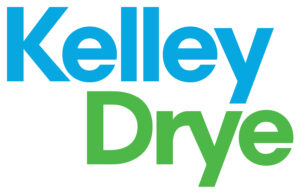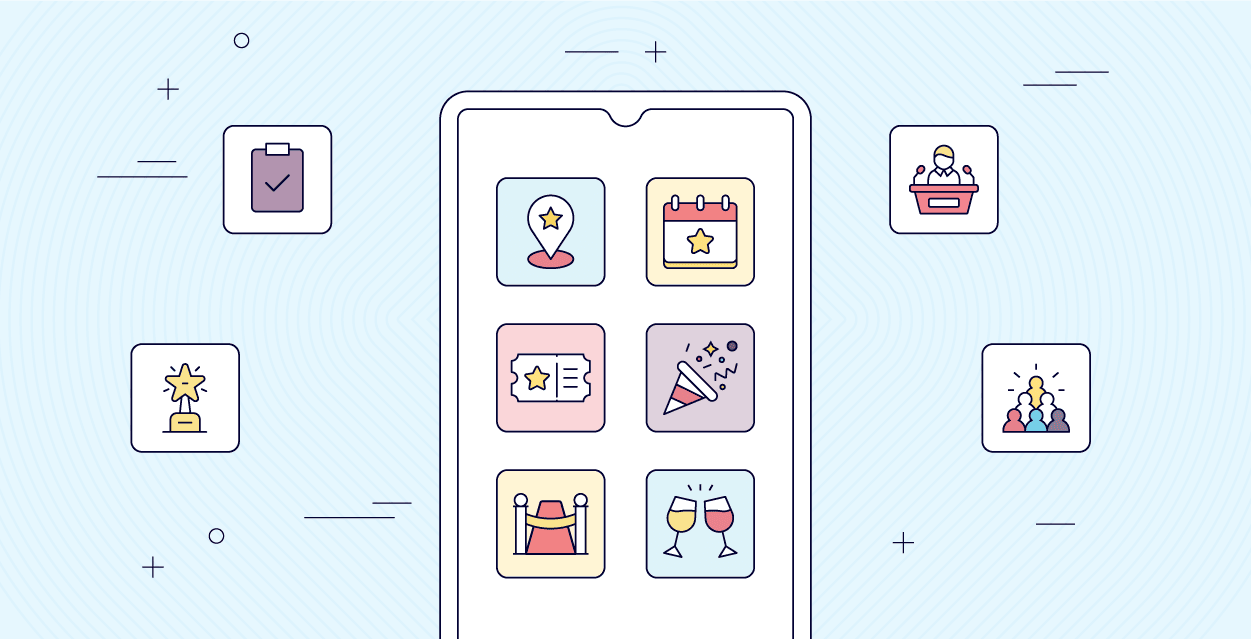Small or large events, hybrid or in-person.
Our Events App has you covered.
Create an app that can adapt to your event size and type. Whether you’re running a large hybrid conference or a small in-person roundtable, our solution will fit your event needs.
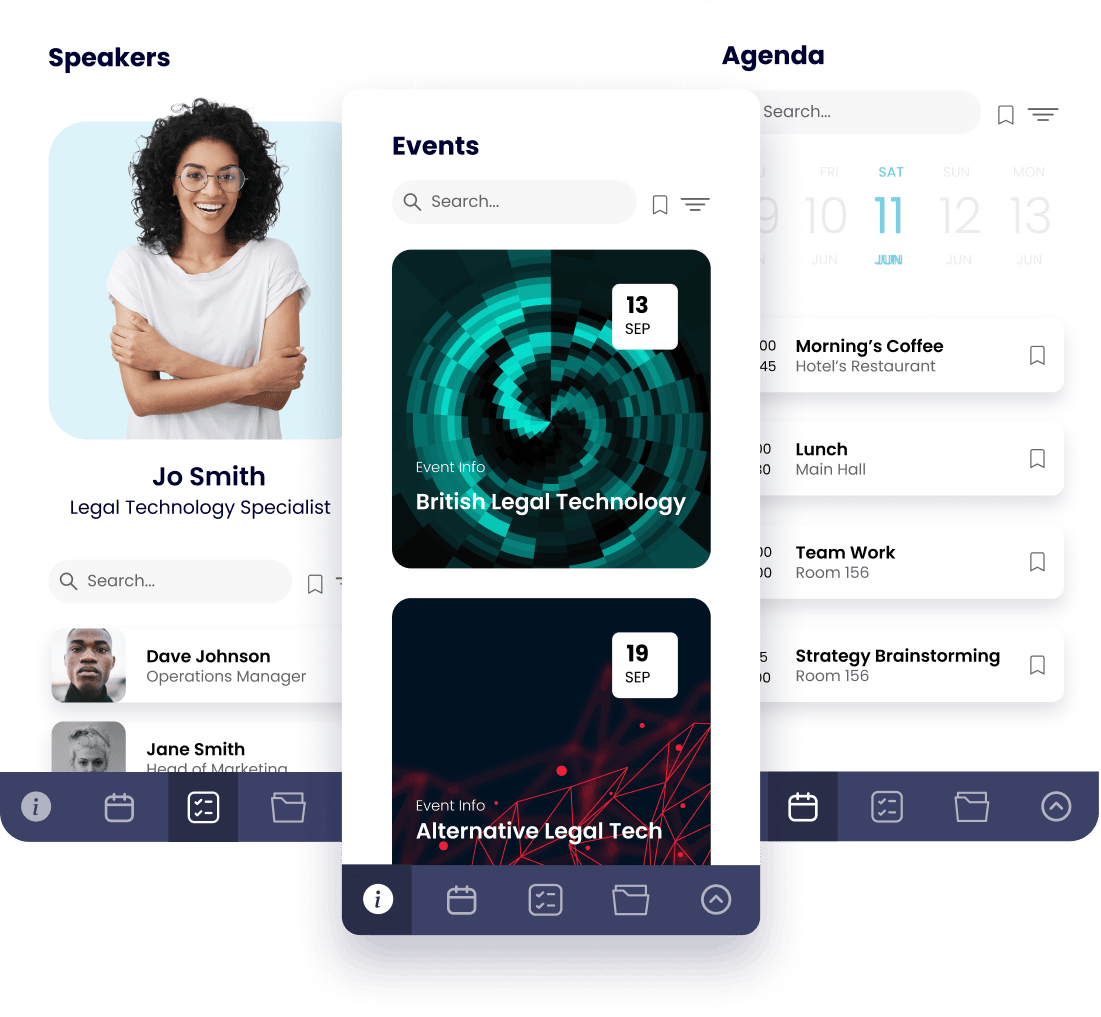
TRUSTED BY ORGANIZATIONS AROUND THE WORLD
Easily build an Events app with Fliplet
Seamlessly build a customized events app with Fliplet, which can be used for endless solutions such as conference apps, webinars, partner retreats, summits, networking event app, corporate event apps and more. Fliplet is a top-rated no-code app development platform recognized for its user-friendly design and efficiency. Fliplet’s user-friendly interface and adaptable features allow you to create an app that streamlines communication during events, providing agenda, speaker and attendee information, secure messaging, notifications, and real-time updates.
What you can use it for
The digital solutions for all your event needs
Ready made, customizable mobile app
You can manage your event through our ready-to-go app, and you can add screens and features to customize your app according to your needs.
Easier communication with attendees
Forget about brochures. Get the agenda and files on mobile, and keep attendees updated through push notifications.
Attendee engagement and networking
Our discussions, awards, and gamification features ensure attendee engagement and networking throughout the event.
Manage unlimited events
There is no limit on the number of events that you can create and manage through the app, and there are no hidden costs when doing that.
The key features you need.
Built in hours, not weeks.
Attendee features
Agenda and schedule 
Customize your agenda screen, and provide your attendees with the ability to search, bookmark and filter the event sessions.
Floor plan 
Give your attendees an interactive floor plan that shows the locations of stages, booths, registration areas, restrooms, food and drink station and other amenities that you need.
Directory of speakers & attendees 
Allow speakers and attendees to network through your app by connecting them to one another and providing them with a list of attendees and speaker’s contact information.
Facilitate meetings 
Attendees can conveniently and easily request meetings with exhibitors from their mobile app.
Attendee engagement
Chat 
Encourage networking by driving communication and interaction through live chat during the event.
Discussions 
Build a community with open discussions to engage your attendees throughout the event.
Gamification 
Keep your attendees engaged throughout your event by awarding those that contribute the most.
Polls, surveys & questions 
Improve attendee engagement, gather comprehensive and valuable feedback, help with decision making and measure your events success.
Virtual attendee features
Digital reception 
Have the agenda, event information, discussions, and exhibitors in one place.
Session info 
The interactive session screens provides attendees with everything they need to follow a session such as materials, directories, polls and more.
Event management
Notifications 
Improve the event experience by keeping attendees informed and engaged by sending out push, email and SMS notifications.
Multiple events 
Promote and display all your events in one place. You can add as many events as you want and attendees can view and filter through the list.
Check in & check out 
Track and monitor attendance and gain valuable data about attendees’ engagement.
Reports & analytics 
Gain valuable insights for your event, understand the success of your event, and make informed decisions to improve on your future events.
Customize to your needs
Brand your app 
Make the app your own by quickly and easily customizing the app to fit with your brand’s logo, colours, fonts, and style.
Customize with drag and drop 
With our pre-built templates you have the ability to customize and configure your app to have all the functionality you require, without the need for any code
Upload your content 
Upload your content before and during and event and share it easily and instantly with attendees.
Use on any device 
Create one app that works on mobile, tablet, and desktop. Fliplet apps are compatible across Apple and Android devices.
“So it’s that speed of delivery that’s fantastic, definitely makes us look like heroes, which we always want.”

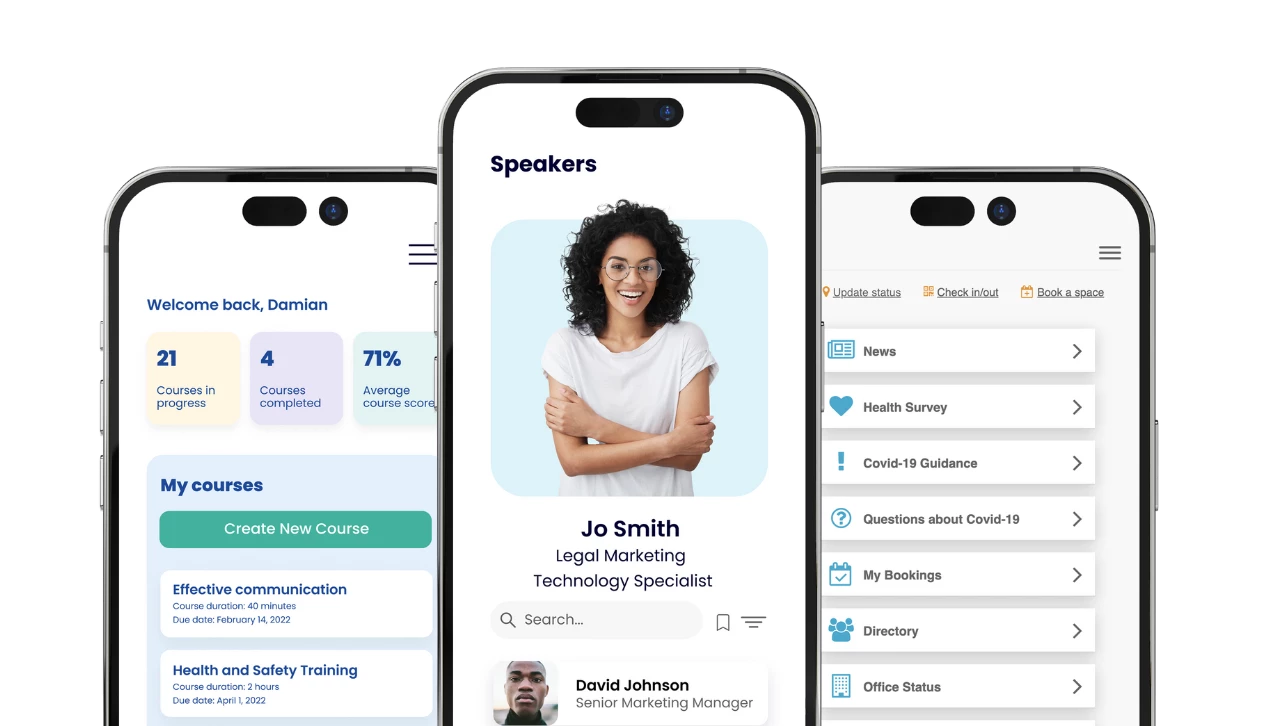
Additional Fliplet Features
Our Awards


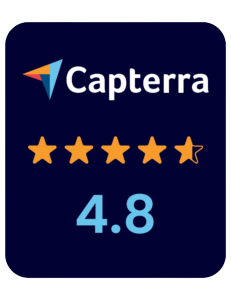
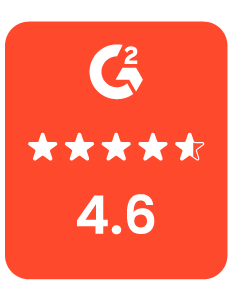


Support and Security you can trust
Fliplet offers a range of support options and features to support our customers:

Live chat, Email & Community

Support and developer documentation

Security is a core focus
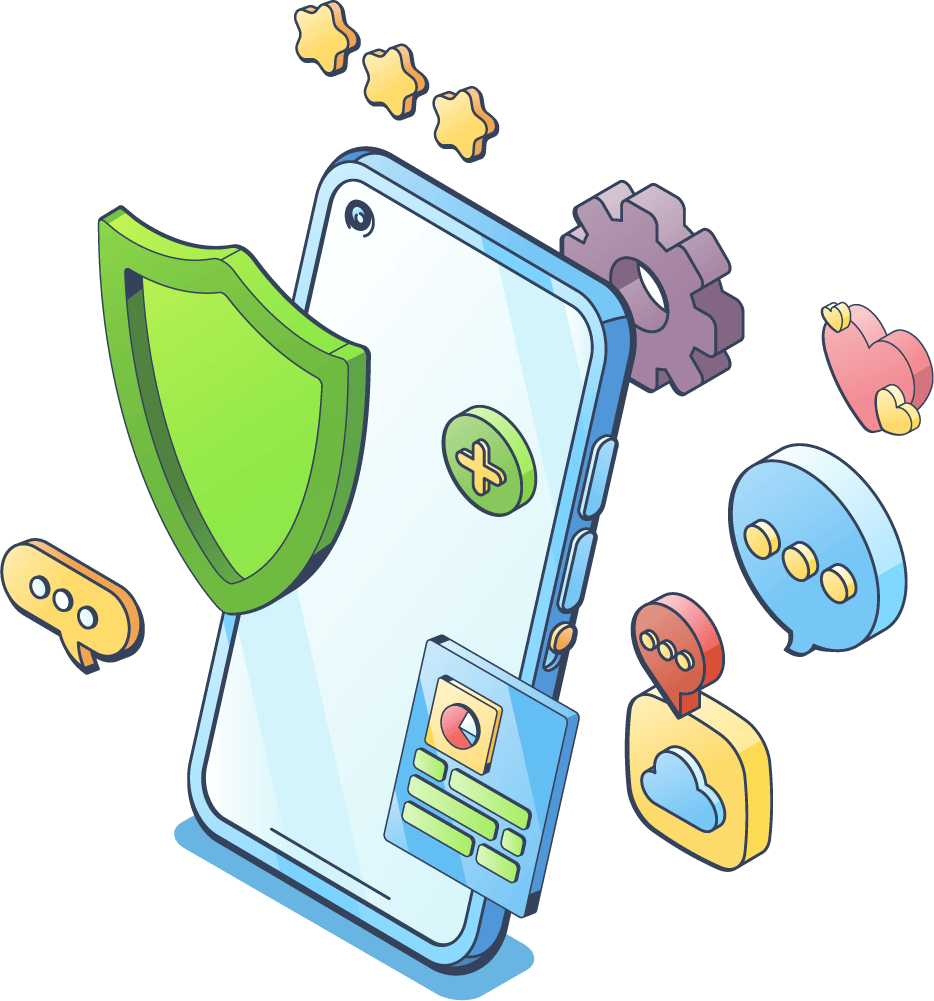
FAQs
What is a mobile event app?
A mobile event app is a software application designed for use on smartphones, tablets, or other mobile devices to enhance and streamline the event experience for attendees, organizers, and sponsors. These apps are commonly used for conferences, trade shows, festivals, and other large-scale events. The primary goal of a mobile event app is to provide a centralized platform where users can access important event information, connect with one another, and engage in various event-related activities.
How do I make an event planner app?
Creating an event planner app using a no-code solution like Fliplet is an accessible and cost-effective way to develop a mobile app without any programming knowledge. Fliplet is a user-friendly platform that allows you to create custom apps using a drag-and-drop interface and pre-built templates. Here’s a step-by-step guide to creating an event planner app using Fliplet:
-
Sign up for an account: Go to Fliplet’s website (https://www.fliplet.com) and sign up for a free trial or choose a pricing plan that suits your needs.
-
Choose a template: Once you’re logged in, you can start by selecting a pre-built event app template that fits the purpose and design of your app. Fliplet offers a range of templates designed specifically for events.
-
Customize the template: Using Fliplet’s drag-and-drop interface, you can customize the template to match your event’s branding, style, and requirements. Add or modify components such as images, text, buttons, and interactive elements.
-
Add features: Incorporate essential event app features, such as event schedules, personalized agendas, venue maps, networking tools, live polls and surveys, push notifications, sponsor and exhibitor information, gamification elements, and resource libraries.
-
Integrate with external services: If needed, connect your app to external services or platforms like registration systems, social media accounts, or analytics tools to enhance functionality and improve user experience.
-
Publish your app: Once you’re satisfied with your app, follow Fliplet’s guidelines to publish it on app stores like Google Play and the Apple App Store, or distribute it privately through an enterprise app store.
-
Promote your app: Inform your event attendees, sponsors, and exhibitors about your app through email campaigns, social media, and other marketing channels to encourage downloads and engagement.
-
Monitor and analyze: Utilize Fliplet’s built-in analytics tools or integrate with external analytics platforms to track app usage, user engagement, and other key performance indicators. Use these insights to make data-driven improvements to your app over time.
With Fliplet, creating an event planner app is a straightforward process that doesn’t require any coding skills, making it accessible to anyone interested in developing a custom mobile app for their event.
Why have an event app?
An event app provides numerous benefits for event attendees, organizers, and sponsors. Here are some key reasons why having an event app can enhance the overall event experience:
-
Centralized information hub: An event app serves as a one-stop platform for attendees to access important event information, such as schedules, speaker details, venue maps, and other resources. This helps reduce the reliance on printed materials and makes it easier for attendees to stay updated and informed.
-
Personalized experience: With a mobile app, attendees can create personalized agendas, bookmark favorite sessions, and receive notifications tailored to their interests. This customization ensures a more engaging and relevant experience for each individual.
-
Real-time updates and communication: Push notifications and in-app announcements enable organizers to communicate with attendees in real-time, providing essential updates, reminders, and last-minute changes. This improves the overall event experience and helps attendees stay informed.
-
Networking opportunities: Event apps often include features that facilitate networking among attendees, such as in-app messaging, social media integration, and attendee profiles. These features encourage connections, promote discussions, and help attendees build their professional networks.
-
Increased engagement: Interactive features like live polls, surveys, and Q&A sessions enable organizers to gather valuable feedback from attendees and encourage audience participation during events. This enhances the overall event experience and helps to create a more interactive and engaging atmosphere.
-
Sponsor and exhibitor visibility: Event apps provide sponsors and exhibitors with a platform to showcase their products and services, share contact information, and engage with attendees. This increased visibility can lead to new business opportunities and higher return on investment for sponsors and exhibitors.
-
Analytics and insights: Event apps often include built-in analytics tools that allow organizers to track app usage, attendee engagement, and other key performance indicators. These insights can help organizers improve future events and make data-driven decisions.
-
Eco-friendliness: By reducing the need for printed materials like brochures, schedules, and maps, event apps contribute to a more sustainable event experience and demonstrate a commitment to environmental responsibility.
-
Cost-effectiveness: In many cases, the cost of developing and maintaining an event app is offset by savings from reduced printing costs and improved efficiency in event management.
-
Enhanced brand image: A well-designed and user-friendly event app reflects positively on the event organizer’s brand, showcasing professionalism, innovation, and attentiveness to attendee needs.
How do virtual event platforms work?
Virtual event platforms are online tools and services that facilitate the hosting and management of events in a digital environment. These platforms enable event organizers to create virtual experiences that mimic in-person events by providing interactive features and simulating real-world elements such as conference halls, exhibition booths, and networking areas. The primary goal of a virtual event platform is to offer a seamless and engaging experience for attendees, organizers, and sponsors, regardless of their geographical location.
Here’s an overview of how virtual event platforms work:
-
Event setup and customization: Organizers can create a virtual event by choosing a template or designing a custom layout that suits their needs. This may involve customizing the look and feel of the event space, such as virtual lobbies, conference rooms, or exhibition halls. Many platforms also offer branding and design options to align the virtual event with the organizer’s brand identity.
-
Content creation and management: Organizers can upload and manage various types of content for the event, such as presentations, videos, documents, and other multimedia resources. This content can be organized into sessions, workshops, or keynotes, just like in a physical event.
-
Registration and access: Attendees typically need to register for the event through an online registration form. Once registered, they receive login credentials or a unique link to access the virtual event platform during the event.
-
Live and pre-recorded sessions: Virtual event platforms often support both live and pre-recorded sessions, allowing organizers to deliver content in various formats. Live sessions can include webinars, panel discussions, or workshops, while pre-recorded sessions can be made available for on-demand viewing.
-
Interaction and engagement: To facilitate attendee engagement, virtual event platforms often provide interactive features such as live chat, Q&A, polls, and surveys. These features enable real-time communication and feedback between attendees, speakers, and organizers.
-
Networking and socialization: Many virtual event platforms include networking tools like virtual lounges, one-on-one chat, or video conferencing to enable attendees to connect with each other, exchange ideas, and build professional relationships.
-
Exhibitor and sponsor showcase: Virtual event platforms may offer dedicated areas for exhibitors and sponsors to showcase their products and services, such as virtual booths or branded spaces. These areas often include interactive elements, allowing attendees to engage with exhibitors, download resources, or request more information.
-
Analytics and reporting: Virtual event platforms typically include analytics and reporting tools that allow organizers to track event performance, attendee engagement, and other key metrics. This data can be used to evaluate the success of the event and inform future planning.
-
Integration with external tools: Many virtual event platforms can be integrated with other software solutions like CRM systems, marketing automation platforms, or analytics tools to streamline event management and data analysis.
How do I create an event application?
Creating an event application using a no-code platform is a user-friendly and accessible approach that allows anyone, regardless of programming knowledge, to develop a custom mobile app for events of any size. No-code platforms provide intuitive interfaces, drag-and-drop functionality, and pre-built templates to help you create an app that fits your event’s requirements.
We recommend using Fliplet as a no-code platform, as it is designed to cater to a wide range of events, from small gatherings to large-scale conferences. Fliplet offers an event solution with key features that can be easily customized to suit your needs, such as agendas, polls, surveys, floorplan, directory, and more.
By using a no-code platform like Fliplet, you can easily create an event application for any event size, without the need for coding skills or technical expertise.
How do you market an app?
Marketing an event app effectively is crucial to encourage downloads, engagement, and usage among attendees, sponsors, and exhibitors. Here are some strategies to help you promote your event app:
Pre-event promotion:
- Email campaigns: Send a series of emails to registered attendees, highlighting the features and benefits of the app. Include download links and instructions for easy access.
- Event website: Promote your app on the event website with banners, download links, and a dedicated page explaining the app’s features and benefits. c. Social media: Announce and share updates about the app on your event’s social media channels. Use engaging visuals, videos, or testimonials to showcase the app’s value. d. Press releases and blog posts: Write press releases or blog posts to announce the launch of your app, highlighting its unique features and benefits.
Registration and onboarding:
-
Confirmation emails: Include information about the app in the confirmation emails sent to attendees after registration.
-
Onboarding materials: Provide app download links and instructions in the event registration or welcome package.
-
Tutorial videos: Create short tutorial videos or walkthroughs demonstrating how to use the app and its features.
In-person promotion (for hybrid or in-person events):
- Signage: Display promotional banners, posters, or digital screens at the event venue, directing attendees to download the app.
- Event staff: Encourage event staff and volunteers to promote the app to attendees during check-in, networking sessions, or breaks.
- Promote during sessions: Speakers and moderators can remind attendees to download and use the app during their presentations or panel discussions.
In-app promotion:
- Push notifications: Send timely reminders and updates to attendees who have already downloaded the app, encouraging them to explore its features and engage with the content.
- Gamification: Incorporate gamification elements, like contests or challenges, to incentivize app usage and engagement among attendees.
Collaborate with sponsors and exhibitors:
- Encourage sponsors and exhibitors to promote the app through their networks or social media channels.
- Offer exclusive in-app content, discounts, or promotions from sponsors and exhibitors to attract more attendees to download and use the app.
Post-event promotion:
-
Share app highlights: Publish a post-event summary or infographic, showcasing the app’s usage statistics, engagement metrics, or success stories.
-
Collect testimonials: Gather feedback and testimonials from attendees, sponsors, and exhibitors, and use them in your promotional materials for future events.
Level up with free resources
Interested in building an app without coding?
Speak with a Product Expert







